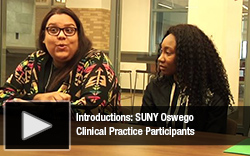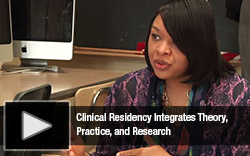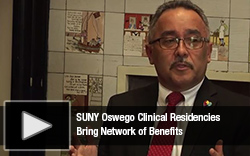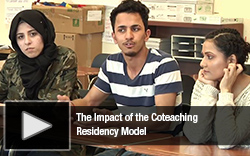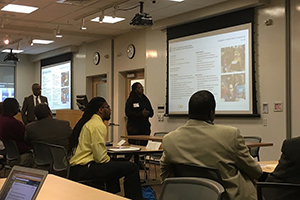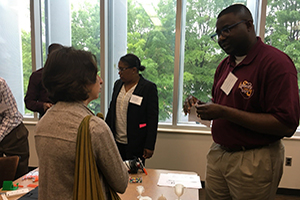24 Jul2018
By Amanda Lester and Kristin McCabe
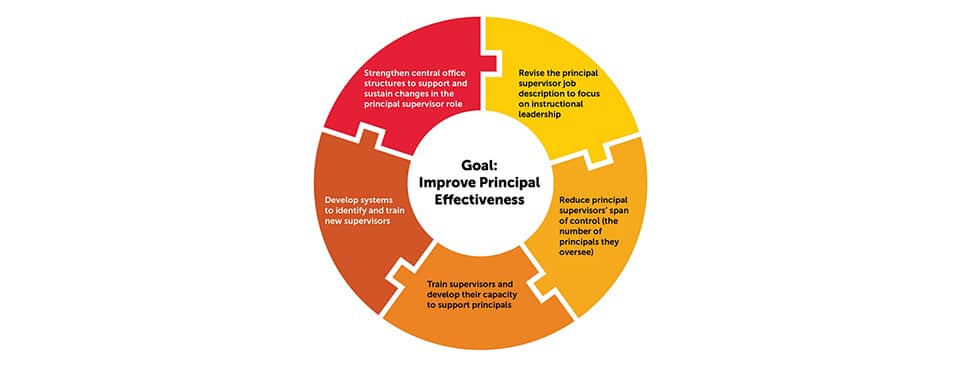
A new study of The Wallace Foundation’s Principal Supervisor Initiative (PSI) identifies successful ways for principal supervisors’ jobs to be refocused to more effectively support principals’ instructional leadership.
Typically, principal supervisors in large, urban districts are assigned to oversee too many principals, in addition to numerous district tasks, to be able to have an impact on principals’ effectiveness as educational leaders. The PSI aimed to improve this situation by addressing five core components: (a) revising supervisors’ job description to focus on instructional leadership, (b) reducing the number of principals in each supervisor’s case load, (c) developing supervisors’ capacity so support principals, (d) developing systems to identify and train new supervisors, and (e) strengthening central office structures to support and sustain these changes.
29 May2018
By Amanda Lester
AACTE is pleased to announce a new feature in the Research-to-Practice Spotlight Series focused on the clinical residencies and partnerships of the State University of New York (SUNY) at Oswego School of Education.
The first set of videos, linked above, introduces many of the key players in the programs visited by AACTE staff last year. Faculty, school and district partners, program graduates, and current students share their perspectives on the impact and rationale for offering a yearlong residency embedded in the Syracuse City Schools and community.
20 Mar2018
By Amanda Lester
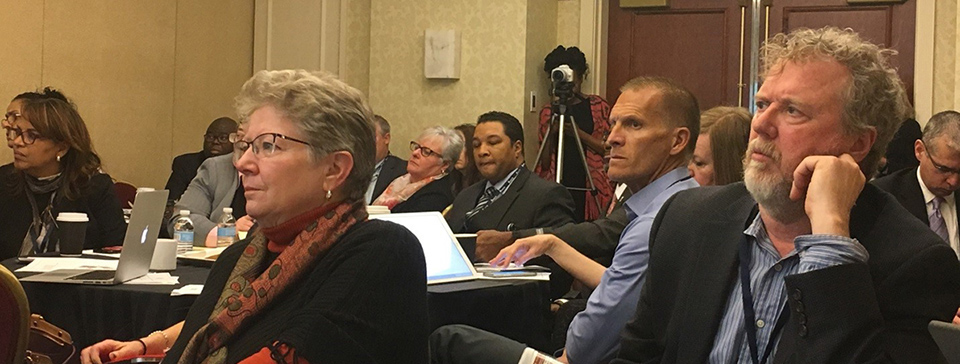
On February 28, AACTE hosted a daylong preconference workshop titled “Strengthening the Pipeline to Transform the Principalship,” sponsored by The Wallace Foundation. The event, held just prior to the 70th AACTE Annual Meeting in Baltimore, Maryland, was attended by PK-12 and higher education leaders from across the nation and engaged participants in presentations and conversation on educational leadership through the lenses of policy and practice.
The agenda was broken into two thematic segments. The first segment highlighted how policy, partnerships, and resources influence strategies to renew principal preparation programs. The second included presentations about key policies that influence the renewal of principal preparation programs.
26 Jan2018
By Amanda Lester
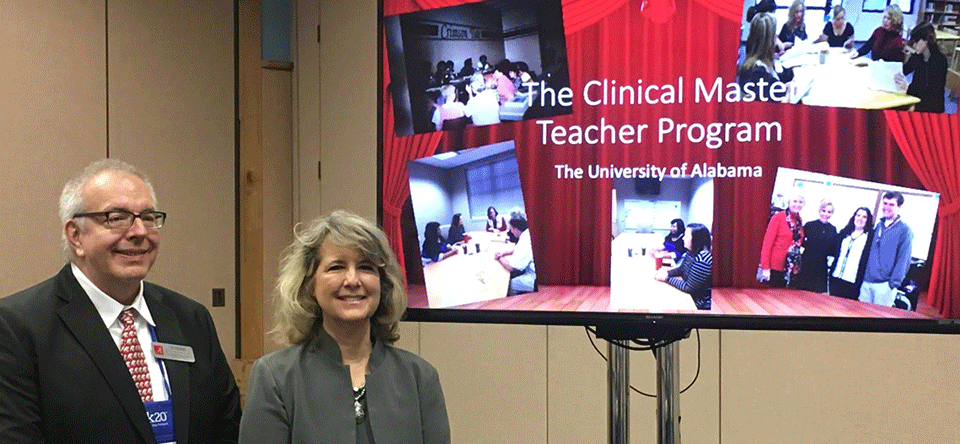
Interested in learning more about what’s been happening at AACTE this year? Looking for information about innovative initiatives being led by AACTE members and partners? For all of this and more, be sure to add the AACTE Gallery time blocks to your personalized 2018 Annual Meeting Online Event Planner schedule. Returning to the Annual Meeting for a second year, the Gallery will offer opportunities to network while learning about promising innovations in educator preparation.
In addition to offering interactive presentations, this year’s Gallery will feature a dedicated coffee and conversation space where Annual Meeting participants can chat with representatives from AACTE member and partner initiatives, as well as AACTE staff, to learn more about programs and opportunities of interest. The AACTE membership booth will also be located nearby, and staff will be on hand to share information and answer questions.
22 Jan2018
By Amanda Lester

If you are looking for an opportunity to engage in a dynamic day of discussion and information sharing about the preparation of school leaders, look no further. With the generous support of The Wallace Foundation, AACTE is excited to again be able to host a free, day-long preconference event before AACTE’s Annual Meeting to share ideas and issues focused on strengthening the principal pipeline.
Strengthening the Pipeline to Transform the Principalship will be held Wednesday, February 28, 8:00 a.m.-4:30 p.m. at the Marriott Baltimore Inner Harbor. Participants will draw upon emergent Wallace Knowledge in School Leadership as well as presentations on emergent policy issues, initiatives to improve practice, and exemplars of practice in educational leadership to explore approaches and address persistent problems in principal preparation.
08 Dec2017
By Denise Pearson and Amanda Lester

As the nation’s classrooms become more diverse, research has demonstrated that developing a more diverse teaching workforce is imperative to meeting the needs of all students. Efforts are under way across the nation to identify successful strategies for increasing the recruitment and retention of teachers of color, especially men of color, into the education workforce. Organizations including AACTE and the State Higher Education Executive Officers (SHEEO) are among those leading such efforts.
At AACTE, this work includes the Black, Hispanic, and Latino Male Teacher Initiative Networked Improvement Community (NIC), the AACTE Holmes Program, and the Diversified Teaching Workforce: Recruitment and Retention Topical Action Group. Each of these initiatives is focused on increasing educator diversity by identifying and implementing practice that supports degree attainment and teacher certification. The NIC is currently developing a conceptual framework paper to highlight some of these strategies and plans to release the paper at the 2018 AACTE Annual Meeting.
06 Oct2017
By Rodrick Lucero and Amanda Lester
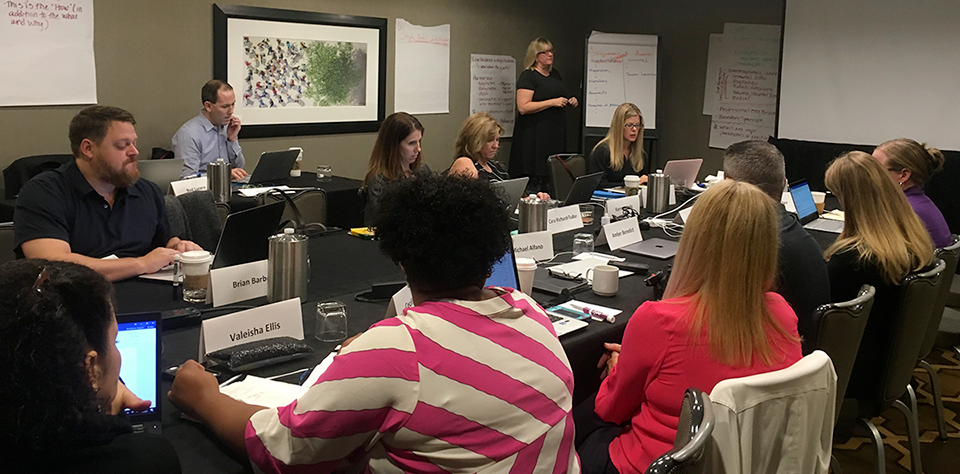
We are thrilled to announce the launch of a new AACTE task force to study how to improve the preparation of special education teachers through clinical practice. Growing out of the work of the AACTE Clinical Practice Commission (CPC), the AACTE Special Education Task Force held its inaugural meeting October 1-2 in Washington, DC.
The task force is charged with applying the CPC frameworks for clinical educator preparation to the particular needs of developing special education teachers. During this week’s meeting, the group began outlining the scope of its work, which is supported by a grant from the Collaboration for Effective Educator Development, Accountability, and Reform (CEEDAR) Center. The task force will study areas such as dual licensure and dual preparation models, pipeline strategies around recruitment and retention, interdisciplinary collaboration, and other factors pertinent to this specialized preparation. They ultimately plan to identify models and develop recommendations to amplify promising practices, establish continuous improvement benchmarks, and provide guidance for the field.
27 Jun2017
By Amanda Lester

On July 27, AACTE will host the final installment of a four-part webinar series highlighting the experiences and findings of each of the 10 institutions in the AACTE Black and Hispanic/Latino Male Teachers Initiative Networked Improvement Community (NIC). The webinar, “Diversifying the Teacher Pipeline at CSU-Fullerton and Northeastern Illinois University: Lessons From AACTE’s NIC,” will be held on Thursday, July 27, 2:00-3:00 p.m. EDT.
In this webinar, presenters from California State University, Fullerton, and Northeastern Illinois University will discuss the how their teams applied improvement science in the context of the NIC, as well as at their own institutions. The discussion will feature specific initiatives and strategies developed by both institutions’ teams and will demonstrate how NIC-developed approaches can be adapted locally to advance a common goal – in this case, to increase the percentage of Black and Hispanic/Latino men receiving initial teaching certification through educator preparation programs.
20 Jun2017
By Amanda Lester
A member of the North Carolina A&T State University team shares its work during the May event at Morgan State University.
Abiodun Fasoro of Central State University discusses his campus’ minority male STEM program during the Verizon Innovative Learning Showcase.
Last month, I had the privilege of participating in the Building a Networked Improvement Community Around Engaging Minority Males in STEM Workshop at Morgan State University. The workshop focused on advancing the work of the Early STEM Engagement for Minority Males (eSEM) Initiative, a network of 16 minority-serving institutions (MSIs).
Led by Morgan State and in partnership with Verizon Innovative Learning Programs, SRI Education, the National CARES Mentoring Network, and local school districts, eSEM is a growing collaborative seeking to address STEM achievement challenges and improve outcomes for middle school minority male students through the development of a Networked Improvement Community (NIC). The initiative is supported through grants from the National Science Foundation and includes the following universities:
04 Apr2017
By Amanda Lester and Rodrick Lucero
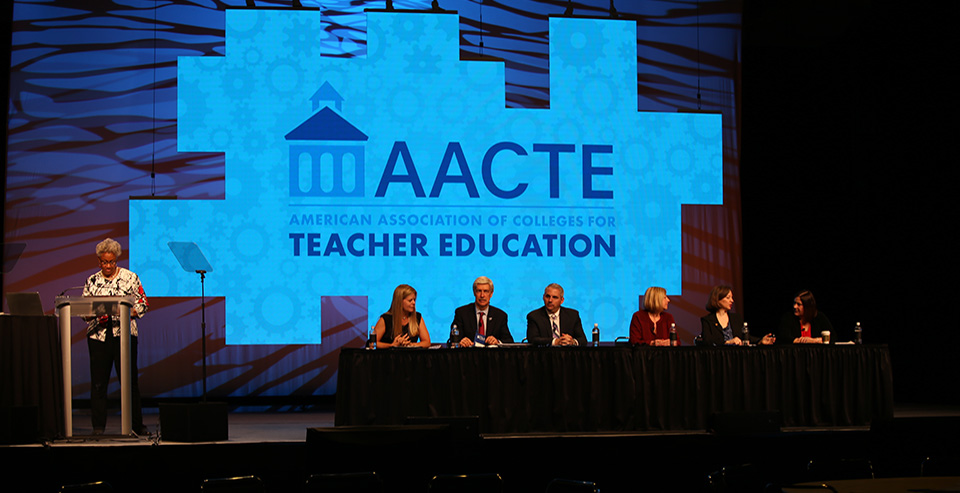
On the last day of the 69th AACTE Annual Meeting in Tampa, Florida, the AACTE Clinical Practice Commission (CPC) held a major forum to unveil and discuss the 10 “Essential Proclamations and Tenets for Highly Effective Clinical Educator Preparation” identified in the CPC’s work. These proclamations and tenets, which undergird a forthcoming white paper, were released during the forum as part of a draft executive summary of the paper.
The event started with a panel presentation and discussion moderated by CPC member Jennifer Robinson, executive director of the Center of Pedagogy and associate professor at Montclair State University (NJ). Panelists included Michael Alfano, Central Connecticut State University; Diane Fogarty, Loyola Marymount University (CA); John Henning, Monmouth University (NJ); Rene Roselle, University of Connecticut; Jennifer Roth, Poudre School District (Fort Collins, CO); and Christine Smith, University at Albany, State University of New York.
04 Apr2017
By Amanda Lester
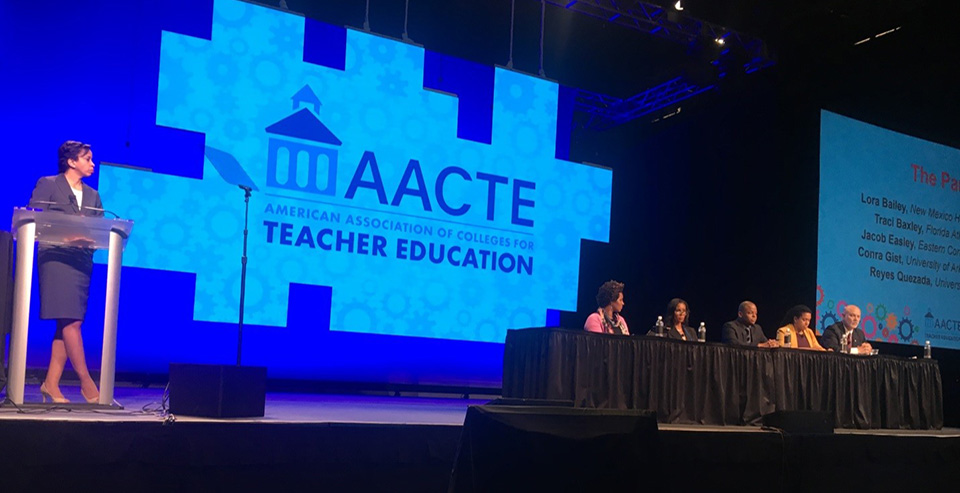
A major forum at last month’s AACTE Annual Meeting highlighted actions under way to diversify the teaching workforce and advance social justice at universities across the country. Titled “Meeting the Needs of All Learners: Advancing Social Justice and Diversity in Teacher Preparation,” the forum featured panelists from four Association initiatives working toward these objectives: the AACTE Black and Hispanic/Latino Male Teacher Initiative Networked Improvement Community (NIC), the Diversified Teaching Workforce: Recruitment and Retention AACTE Topical Action Group, the AACTE Holmes Program, and the AACTE Committee on Global Diversity.
The forum was moderated by Sharon Leathers of William Paterson University (NJ) and included the following panelists, each of whom is a member of one or more of the four initiatives: Lora Bailey of New Mexico Highlands University, Traci Baxley of Florida Atlantic University, Jacob Easley of Eastern Connecticut University, Conra Gist of the University of Arkansas, Fayetteville, and Reyes Quezada of the University of San Diego (CA).
21 Mar2017
By Amanda Lester
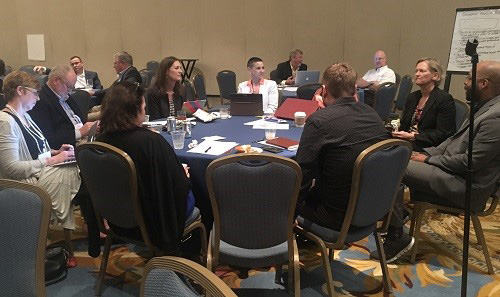
In conjunction with the 69th Annual Meeting, AACTE hosted a daylong workshop March 1 titled “Strengthening Leadership Through Communities of Professional Learning Educational Leadership Preconference,” sponsored by The Wallace Foundation. The event was attended by higher education leaders from across the nation, who shared model strategies and identified priorities and actions needed to strengthen principal preparation across local contexts.
The agenda featured two interactive segments, both of which explored ways to renew principal preparation programs through collaborative action.
13 Feb2017
By Amanda Lester
On February 22, AACTE will host the third installment of a four-part webinar series highlighting the experiences and findings of each of the 10 institutions in the AACTE Black and Hispanic/Latino Male Teachers Initiative Networked Improvement Community (NIC). The webinar, “Diversifying the Teacher Pipeline at Boston University, the University of Arkansas at Little Rock, and William Paterson University: Lessons From AACTE’s NIC,” will be held Wednesday, February 22, from 1:00-2:00 p.m. EST.
The webinar will provide an inside look at the path of inquiry guiding the NIC’s overall work and how that process has shaped and changed recruitment and retention of Black, Hispanic, and Latino male teacher candidates at three participating institutions. Presenters will share specific initiatives and strategies developed through their participation in the NIC process to demonstrate how NIC-developed approaches can be adapted locally to advance a common goal – in this case, to increase the percentage of Black and Hispanic/Latino men receiving initial teaching certification through educator preparation programs.
29 Nov2016
By Amanda Lester
Next month, AACTE will host the second installment of a webinar series highlighting the experiences and findings of each of the 10 institutions in the AACTE Black and Hispanic/Latino Male Teachers Initiative Networked Improvement Community (NIC). The webinar, “Diversifying the Teacher Pipeline at Florida Atlantic University and the University of St. Thomas: Lessons From AACTE’s NIC,” will be held Wednesday, December 14, 2:30-3:30 p.m. EST.
The goal of this NIC is to identify broadly applicable strategies to increase the percentage of Black and Hispanic/Latino men receiving initial teaching certification through educator preparation programs. This webinar will provide an inside look at the path of inquiry guiding the NIC’s overall work and how that process has shaped and changed recruitment and retention of Black, Hispanic, and Latino male teacher candidates at two participating institutions.
21 Nov2016
By Amanda Lester and Omar Davis
On October 28-30, we had the privilege of taking part in the National Convening on Success in Teacher Education at Minority-Serving Institutions (MSIs), held at the University of Pennsylvania. Hosted by the Penn Center for Minority Serving Institutions, the convening was focused around the release of the Center’s new report, A Rich Source for Teachers of Color and Learning: Minority Serving Institutions.
MSIs, which include Hispanic-serving institutions, tribal colleges and universities, historically Black colleges and universities, and Asian American and Native American/Pacific Islander-serving institutions, educate 20% of college and university students, many of whom are low-income and first-generation college students as well as students of color. Because of their focus and scope, MSIs play a key role in teacher preparation and efforts to diversify the nation’s teaching workforce.








